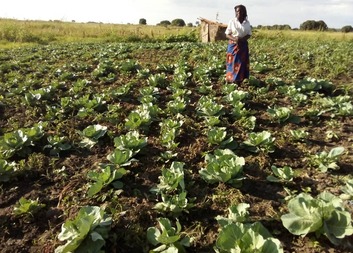Full Name: Promoting the Production and Consumption of Nutritious Foods through an Integrated Multi-Sectoral Approach in Mumbwa, Kaoma and Mongu
Duration: June 2019 – May 2023
Zambia has a poverty rate of 63 percent and an extreme poverty rate of 42 percent. Western Province is one of the poorest provinces with about 80% of its 1 million populations living under poverty line. In Central Province poverty remains high at 56.2%. Predominantly rural population gains its livelihood from subsistence agriculture with low productivity crop and animal production, supplemented by fishery. Around 90% of rural population fall into category small-holder farmer cultivating less than 2 hectares of land. Approx. 117,000 households in Western Province and 102,000 households in Central Province are small-holder households. The correlation between rural poverty and poor service delivery is cyclical and self-reinforcing: rural communities – smallholder farmers in particular - have limited access to agricultural inputs and markets and tend to pursue poor agricultural practices. Smallholder farmers contribute about 80 percent of food production, but over 30 percent of the food produced by these farmers is lost because of post-harvest loss.
Implementation and Results:
- Thanks to CCR activities, pregnant and lactating women, adolescent girls, school learners and smallholder farmers in Western Province improved their knowledge on food security issues and also their access to nutritious foods. CCR raised awareness on nutrition, on maternal, infant and young child feeding, promoted diversified agriculture and increased production, post-harvest management (e.g. food storage, food processing) and improve access to agriculture markets.
- CCR staff met regularly with local communities and schools and assessed the willingness or participation. Model gardens were built in schools where teachers received trainings on nutritious foods, hygiene etc. for its replication with their pupils. Farmers will also receive trainings on the creation of saving groups to overcome the lack of financial and banking services in the area.
Donors:
World Food Programme





